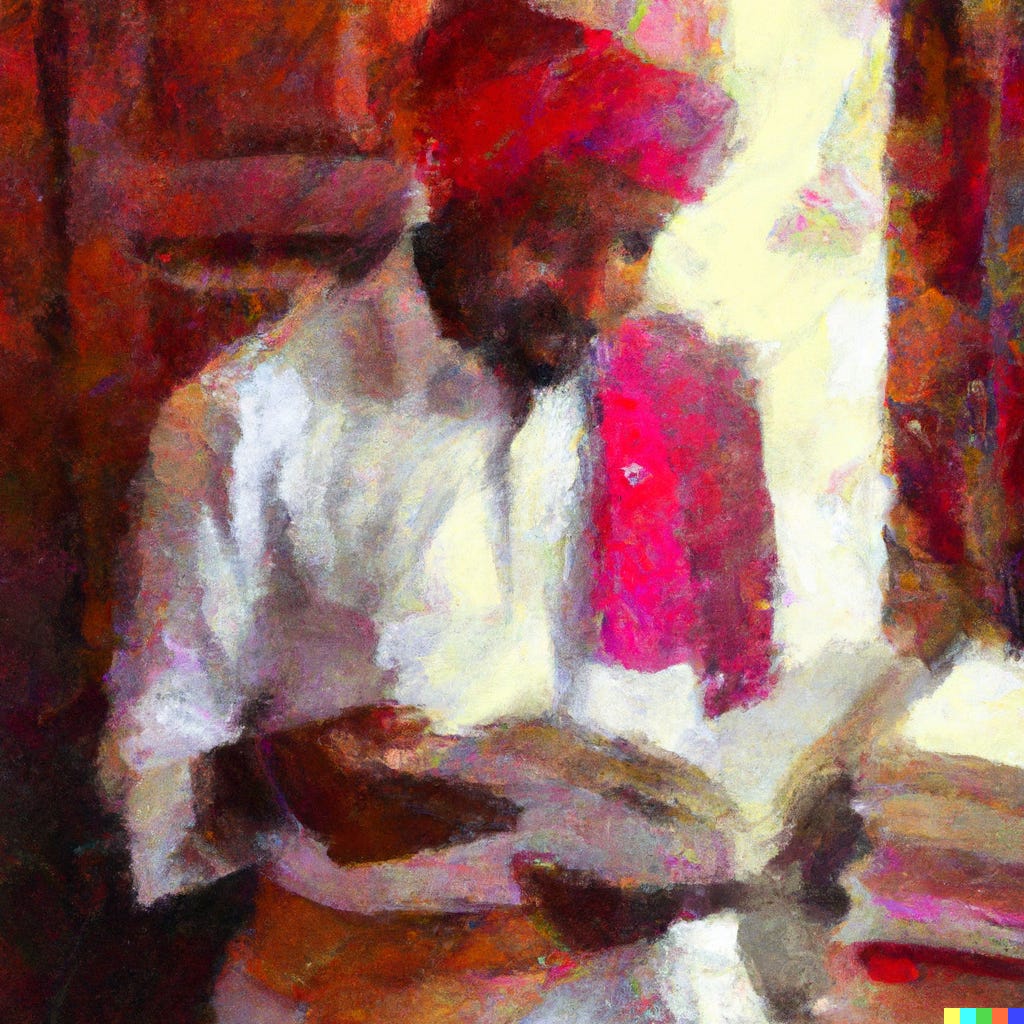Safarnama #8 Journey of Heritage: Unveiling the Past in the Pink City Pt.2
Old words can be re-narrated in new words: all that was needed was empathy, a power and ability to embrace and to feel the warmth of the embrace. ― Shamsur Rahman Faruqi
Safarnama is a work of fiction created solely for entertainment purposes. The series aims to tell stories about various places and lost time in a creative manner. While the names of some places and individuals may be used, any resemblance to real places, events, or persons, living or dead, is purely coincidental.
The creators of Safarnama have taken certain liberties in the storytelling process, including the use of creative freedom in naming and describing various elements of the series. Therefore, any resemblance to actual events or places is unintentional
I stood there, awestruck by the magnificent Amber Fort. Its vast complex of palaces, temples, and courtyards exceeded my wildest imagination. Perched atop a hill, it offered a commanding view of the city below. The walls, made of red sandstone and white marble, showcased breathtaking intricate carvings.
With a specific goal in mind—to trace my ancestry—I embarked on a quest. My first step was to seek information at a library that could shed light on the origins of the Paliwal community. Heading back toward the city, I set out on a mission to locate the local library. Surely, amidst its collection of books and manuscripts, I would find the definitive guide I sought.
As I approached the city, my attention was caught by an elderly man approaching me. Dressed in a white kurta, with a magnificent mustache and a white turban, he leaned on a slender walking stick. Determined, I approached him, hoping to inquire about the whereabouts of the city library. Waving to get his attention, I asked him about the पुस्तकालय (Library) in clear Hindi/Urdu. To my surprise, the old man couldn't understand a single word and responded in what seemed to be Marwari.
Now, not only did I have to find the city library, but I also needed someone who could understand Hindi/Urdu. However, learning Marwari or any other common dialect spoken here wasn't an option due to time constraints. Suddenly, I felt a hand on my shoulder, and as I turned around, I saw a young man in his twenties, sporting a big beard and a pointed, long mustache. He smiled and said that he knew the location of the पुस्तकालय (Library)—it was in Chaura Rasta. He also mentioned that the library had recently been opened by the Maharaja himself.
It took me over an hour to reach Chaura Rasta, though the exact time eluded me. The library resembled a Haveli more than a traditional library, with its beautiful two-story building. As I entered, I found the space deserted, with piles of different manuscripts scattered around. Almost all the manuscripts were written in Sanskrit, wrapped up in red cloth. I sat there with a few manuscripts and thought back to my school days when I used to study Sanskrit and always received good marks, thanks to my mother. But now, I was unable to read anything. Moreover, searching for the keyword "paliwal" would take ages to discover. With evening approaching and the imminent sunset, I realized I wouldn't be able to read anything here.
Leaving the library to find some food, I walked a few miles and came across a lane filled with sweet shops. I stood near one of the shops, watching the halwai (Confectioner) serve food to customers. Two men stood nearby, one of them bald and dressed in traditional white clothes. He seemed anxious and kept asking the halwai (Confectioner) about his order. It appeared he was running late, and his tone of voice confirmed my suspicion. Though I couldn't understand their conversation in Marwari, I heard something that caught my attention—he mentioned "Pali," the place where the Paliwal community originally originated. I heard it correct because he was mentioning it again and again. I should follow him and go where he's going.


